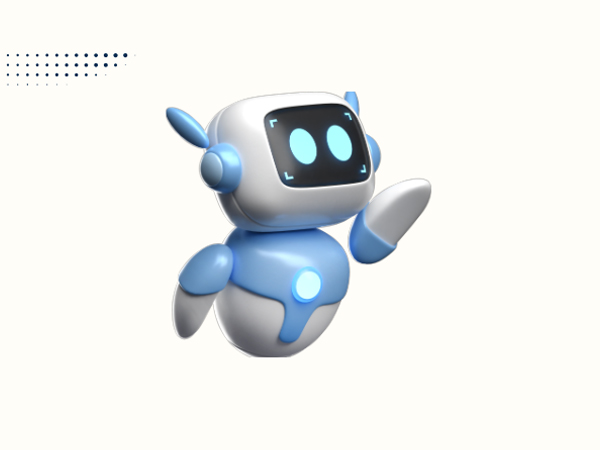AI in Recruiting:
Navigating the Impact of Automated Processing
5/16/2024 By Lucent Heights
As artificial intelligence (AI) continues to revolutionize industries, recruiting has emerged as one of the key areas where AI-driven automation is making a significant impact. From resume screening to candidate matching, AI tools are transforming how organizations find and hire talent.
However, with the growing use of AI in recruiting comes the need to navigate a complex landscape of emerging legislation aimed at regulating automated processing.
This article examines the latest AI legislation and its implications for recruiting, offering insights into how organizations can stay compliant while leveraging AI to stay ahead of the curve.
The Rise of AI in Recruiting
AI has become a powerful tool in the recruitment process, helping organizations streamline tasks that were once time-consuming and labor-intensive. Key applications of AI in recruiting include:
Resume Screening: AI algorithms can quickly sift through thousands of resumes to identify the most qualified candidates, reducing the time and effort required for initial screenings.
Candidate Matching: AI tools analyze job descriptions and candidate profiles to match potential hires with the roles that best suit their skills and experience.
Chatbots: AI-powered chatbots can engage with candidates in real time, answering questions and providing information about the hiring process, thereby enhancing the candidate experience.
These AI applications have brought about significant efficiencies in recruiting, but they also raise important questions about privacy, fairness, and compliance with emerging regulations.
Understanding the Latest AI Legislation

As AI technology advances, governments and regulatory bodies around the world are introducing legislation to address the ethical and legal challenges posed by automated processing.
Some of the key concerns include bias in AI algorithms, transparency in decision-making processes, and the protection of personal data.
Bias and Fairness: One of the most pressing issues in AI legislation is the potential for bias in automated decision-making. AI systems can inadvertently perpetuate biases present in the data they are trained on, leading to discriminatory outcomes in recruiting.
To address this, new regulations are being introduced that require organizations to assess and mitigate bias in their AI systems.
Transparency and Accountability: AI legislation is increasingly focused on ensuring transparency in how AI-driven decisions are made. This includes the requirement for organizations to explain how AI algorithms reach certain conclusions, such as why a candidate was selected or rejected.
Companies must be prepared to provide clear and understandable explanations for their AI-driven recruiting processes.
Data Privacy: With the growing use of AI in processing personal data, data privacy regulations are becoming more stringent. Legislation such as the General Data Protection Regulation (GDPR) in the European Union imposes strict rules on how personal data is collected, processed, and stored.
Organizations using AI in recruiting must ensure that they comply with these regulations, particularly regarding the handling of sensitive candidate information.
Staying Compliant with AI Regulations

Conduct Regular Audits: Organizations should conduct regular audits of their AI systems to identify and address any potential biases. This includes reviewing the data used to train AI algorithms and ensuring that it is representative and free from bias.
Regular audits can help organizations stay ahead of regulatory requirements and avoid potential legal issues.
Ensure Transparency: To comply with transparency requirements, organizations should document how their AI systems make decisions and be prepared to explain these processes to candidates and regulatory bodies.
This includes providing clear explanations of the criteria used in AI-driven decisions and ensuring that these criteria are fair and non-discriminatory.
Prioritize Data Privacy: Organizations must ensure that their AI systems are designed to comply with data privacy regulations. This includes implementing robust data protection measures, such as encryption and anonymization, to safeguard candidate information.
Organizations should also provide candidates with clear information about how their data will be used and obtain their consent before processing their information with AI.
Emerging Trends in AI and Recruiting
Ethical AI Development: There is a growing emphasis on developing AI systems that are ethical, transparent, and accountable. Organizations are increasingly adopting frameworks and guidelines to ensure that their AI tools are designed and implemented in ways that align with ethical principles.
Human-AI Collaboration: While AI is transforming recruiting, the human element remains essential. Many organizations are adopting a collaborative approach, where AI assists recruiters in making decisions rather than replacing them. This ensures that AI is used to enhance, rather than replace, human judgment in the hiring process.
AI Regulation Harmonization: As AI legislation develops globally, there is a trend toward harmonizing regulations across different jurisdictions. This will help organizations operating in multiple regions to comply with AI regulations more easily and ensure that their AI practices are consistent worldwide.
Conclusion
AI in recruiting offers significant advantages in terms of efficiency and effectiveness, but it also introduces new challenges related to compliance and ethics. By staying informed about the latest AI legislation and adopting proactive compliance strategies, organizations can navigate these challenges and continue to leverage AI to enhance their recruiting processes.
As AI technology and regulations continue to evolve, organizations that prioritize ethical AI practices and compliance will be well-positioned to lead in the future of recruiting.
Speak with Us About Your Governance & Privacy Needs
Let’s discuss how we can strengthen your compliance framework and operational strategy.